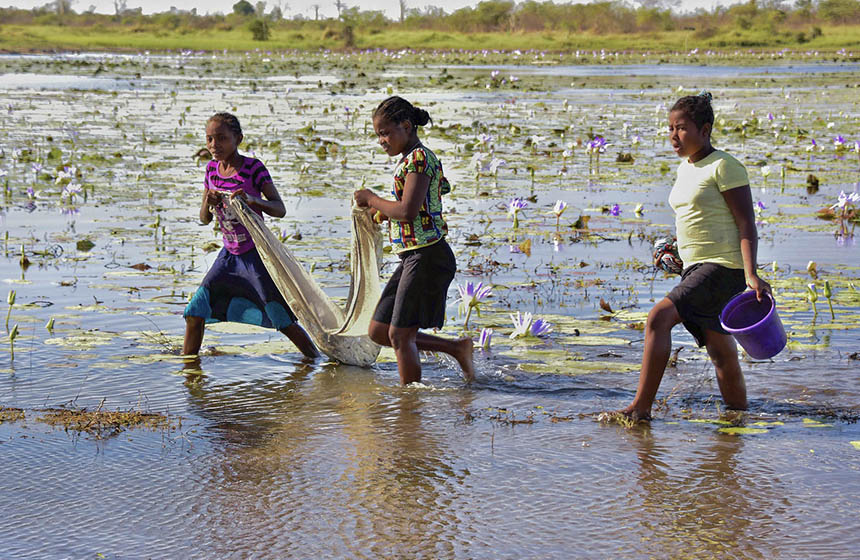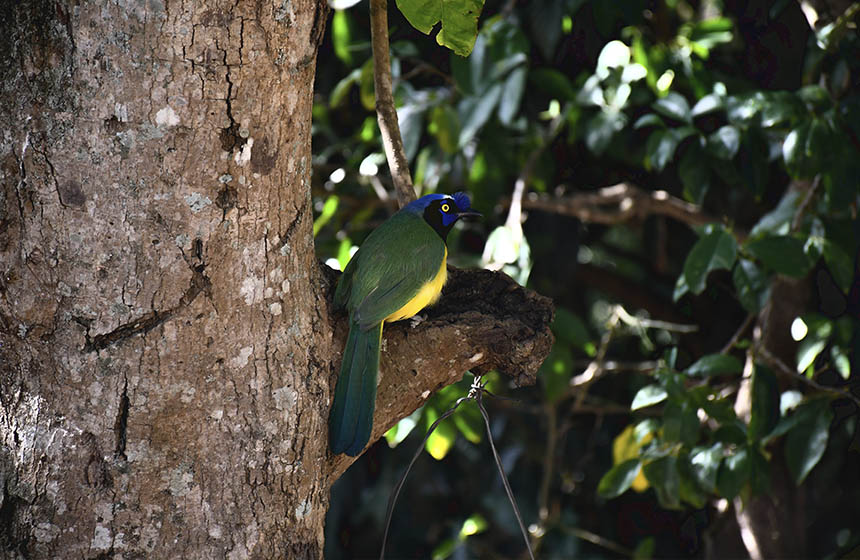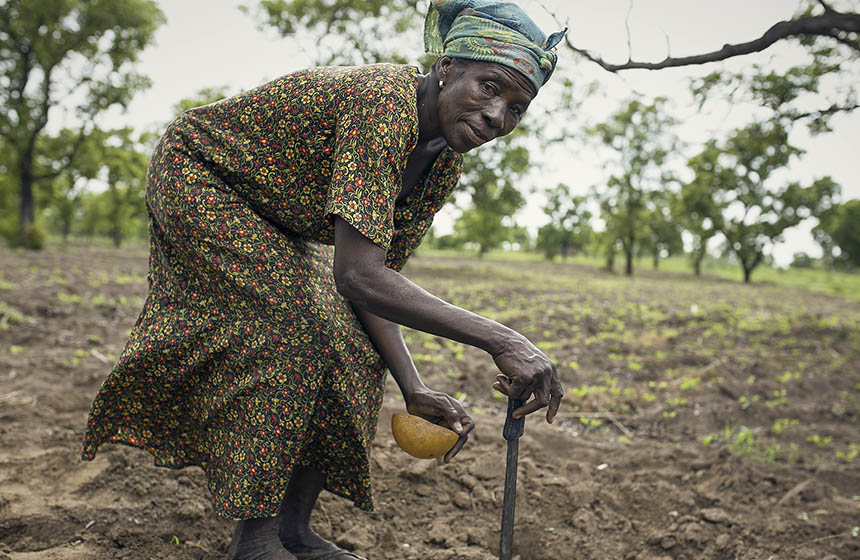Multi-stakeholder association promotes marine conservation, forest management, and sustainable agriculture
A multi-stakeholder platform underpinned by traditional governance principles based on mutual obligations and trust, is working to reduce pressures on coastal ecosystems through marine conservation, forest management, and sustainable agriculture.
Nature-based Intervention:
The multi-stakeholder Plateforme de Concertation pour le Développement Durable de la Baie d’Antongil (PCDDBA, Collaborative Platform for Sustainable Development of the Antongil Bay) was created to provide a space for communication and collaboration about resource management between the various groups that depend on the Antongil bay for different reasons. The PCDDBA has created 20 locally managed marine areas along the bay’s coastline which are continuously monitored for illegal fishing activities. Additionally, they also work on sustainable agriculture supporting various climate resilient and sustainable agricultural practices including the planting of mucuna, a nitrogen-fixing plant that can enrich local soil during fallow periods. Furthermore, promotion of forest management practices that focus on the production of non-timber forest products helps to stave off excessive timber extraction in the area.
Overview of context and outcomes:
The Antongil Bay in Madagascar is the largest bay in the country and one of the most productive in the Indian Ocean. However, it suffers pressures from industrial fishing interests that come into conflict with traditional and artisanal fishing, land conversion from mangroves to rice fields, and climate change and has, as a result, seen declining fish populations and significant damage to marine ecosystems.
Case effectiveness on
Climate change
The improved protection of mangroves and coral reefs is reportedly expected to improve resilience to extreme climate events.
Ecosystem health
Ecological effect: PositiveEffective enforcement of laws that limit destructive fishing practices has been reported. The Locally Managed Marine Areas demonstrated a tenfold increase in fish biomass between 2013 and 2015. Mangrove deforestation has reportedly been reduced.
Socioeconomic outcomes
As a result of the project’s interventions, local incomes have reportedly improved. Food security has also reportedly improved as a result of greater fish diversity, size, and abundance. Promoting the use of nitrogen-fixing plants during fallow periods has been found to increase soil fertility on agricultural land.
Governance
The project is managed through the reintroduction of traditional systems of governance that tie individuals together in a network of mutual obligations supporting more sincere and effective cooperation.
Finance
The project has received financing from the Wildlife Conservation Society, IUCN France, the European Union and the UNDP.
Monitoring and evaluation
The program implements marine monitoring techniques to track fish resources in Antongil Bay, the yearly impacts of climate change on coral reefs in the Bay and illegal fishing frequency.
Trade-offs and limitations
No information yet available on tradeoffs.
Conducted at landscape scale
Ecosystem type
- Coastal
- Mangroves
- Tropical oceans
- Terrestrial production
Climate change impacts addressed
- Loss of food production
Instigators
- Local NGO or CBO (eg. indigenous)
Societal challenges
- Biodiversity conservation
- Climate change adaptation
- Disaster risk reduction
- Economic and Social development
- Food security
Outcomes
- Food security: Positive
- Water security: Not reported
- Health: Not reported
- Local economics: Positive
- Livelihoods/goods/basic needs: Not reported
- Energy security: Not reported
- Disaster risk reduction: Positive
- Rights/empowerment/equality: Not reported
- Conflict and security: Positive
- No. developmental outcomes reported: 5
Resources
Read resource 1Literature info
- Grey literature




